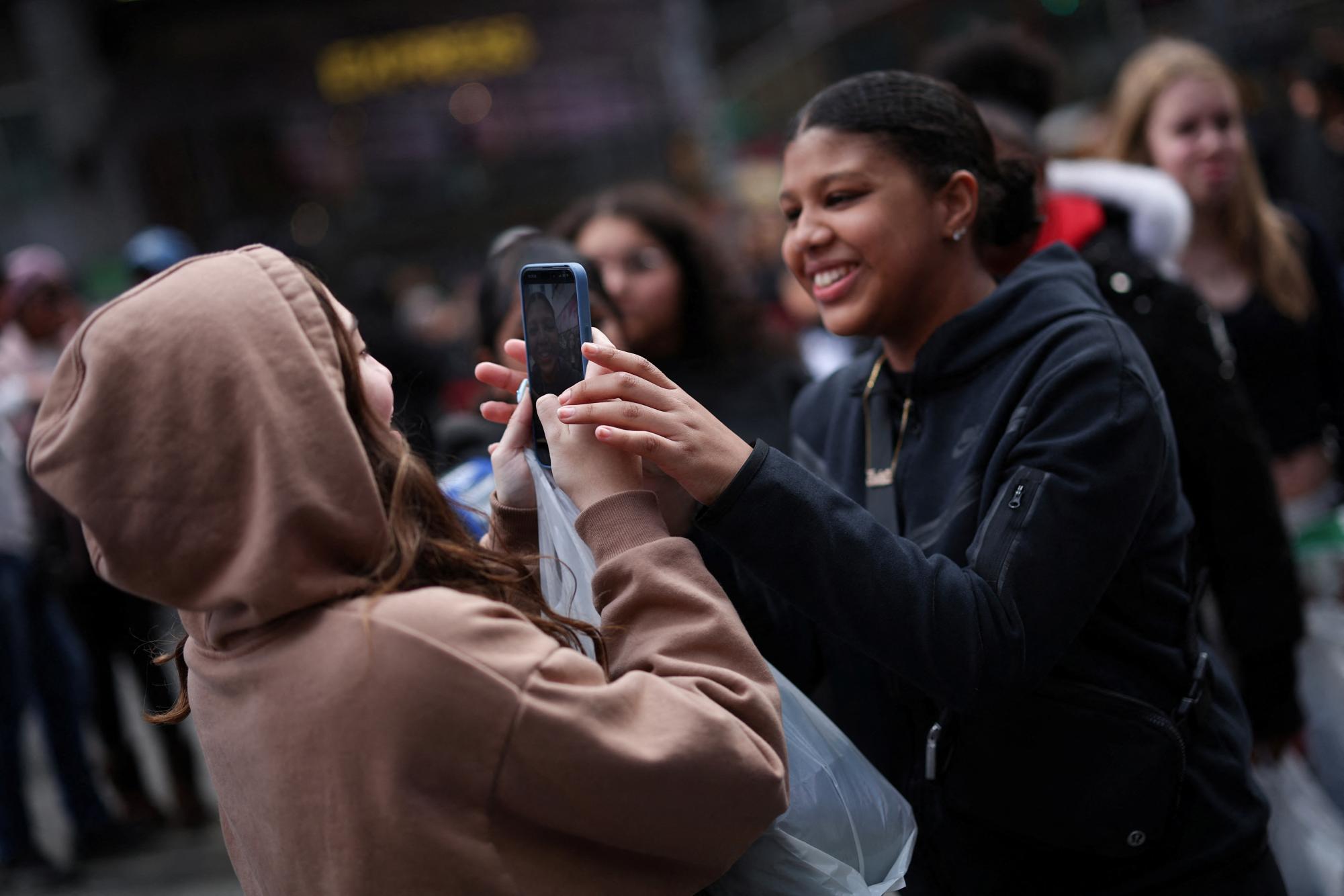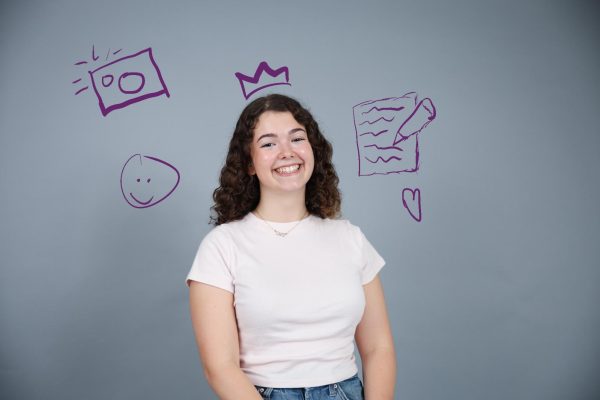On March 25, 2024, Florida Governor Ron DeSantis signed House Bill Three (HB3) into law, outlawing children younger than 14 from having social media and requiring parental consent for 14 and 15-year-olds when using it. The bill went into effect Jan. 1, 2025. According to the governor’s official website, DeSantis said, “Social media harms children in a variety of ways.”
In 1998, the United States Congress passed the Children’s Online Privacy Protection Act (COPPA). This act did not directly ban children under 13 from using social media, but it did ban websites from obtaining information from children under 13. Social media did not exist at the time the act was created, but it applied to these apps afterward because for most social media apps to function, they must create an algorithm based on a user’s previous interactions with the app. Effectively, this act made social media platforms require users to be 13 or older (or lie about their age) to use the apps. However, COPPA did not require confirmation of age, allowing younger social media users to slip through the cracks on certain platforms. HB3 is different; when enforced, it will mandate users to verify their ages through documentation.
The Florida government adopts publicly accepted arguments about social media, including exposure to ideas that cause children to grow up prematurely, develop radical viewpoints, and make them self-conscious. However, both the Democrats and Republicans of the Florida government also know that the messages spread on social media can unite people on a common cause and provide easily accessible information to the youth, a benefit they either ignore or want to take away.
It is our firm belief that this ban will be ineffective because it applies a broad age limit that doesn’t take into account the actual extreme variety in children’s and teenagers’ susceptibility to harm. Adolescents mature at different rates, which makes establishing a legal limit for healthy social media use difficult. While some may argue that we’ve established proper age limits for things like driving, alcohol consumption, and tobacco, social media is different. It is more closely aligned to media consumption, like watching television or movies. Movies have been placed under censorship and restriction as well, but there’s an age-rating system for what movies children can watch to keep things appropriate, not a broad ban preventing children from watching movies entirely. Social media is also an outlet for children to create and spread information, and it is currently one of the best ways to do so. Taking this form of speech away is not just an annoyance, it is potentially a regression to the strides our country has made in politically educating our youth.
Without even using their phones, middle and high schoolers will be exposed to societal pressure to look a certain way, whether it is through standards reinforced on social media or in-person gossip. They will hear wild, insensitive jokes regularly and see possibly radical viewpoints no matter what. However, on social media, kids and teenagers who have difficulty making friends at school or are isolated at home may find people to connect with, improving their mental health. The large population that exists on social media can help students feel less alone. Yet the Florida government continues to use the excuse of those previously mentioned negative effects — effects he has taken no other initiative to solve — to limit teens’ social media usage.
A post-2020 election survey by the Center for Information and Research on Civic Learning and Engagement states that 45% of 14 to 17-year-olds have engaged in at least one form of media creation about social and political issues. According to a 2024 survey by The Muse, 80% of students said they believed social media had either made their generation moderately or significantly more liberal and 45.2% of students said they believed it could also make students moderately or significantly more conservative — a potential threat or benefit to both sides of the political spectrum. We use social media as a medium for political and philosophical self-expression, sharing our opinions without fear of physical harm from behind the screen. It feels safer and less taboo to share our ideas online than at a protest, especially when those ideas are the opposite of the Florida government’s. By signing HB3 into law, the Florida government has taken that feeling of safety away.
What makes this bill an even more direct restriction of our freedom of speech is how revolutionary social media has been as a catalyst for changing people’s opinions. According to a 2023 study by the Pew Research Center, most parents pass along their political views to their children, but this isn’t always the case. Social media can introduce young people to vastly different political views. While this may have negative impacts like introducing people to echo chambers (getting trapped in a cycle of posts that express only your own political beliefs), it can also expose youth to new perspectives their parents may not share. It presents us with others’ experiences, thus teaching us empathy and providing us with new viewpoints, possibly swaying our political perspectives.
If the Florida government wanted to protect children, it would not focus its efforts on social media access; it would start with large-scale issues affecting teenagers. It would ensure mental health resources funding in every school, provide more free tutors to improve socioeconomic gaps between students, and stop weakening child labor laws. In fact, if the government cared about mental health problems that may be related to social media, it would require education on proper social media usage in elementary schools and restrict companies that produce addictive products from advertising to children online.
Our Constitution wouldn’t have been ratified if not for the Bill of Rights, chief among them the First Amendment. While many immediately (and rightfully) associate the restriction of social media with our freedom of speech, we believe it also restricts another First Amendment right: our freedom of assembly.
When we were isolated during the COVID-19 pandemic, our generation turned to social media to spread our views. At the time, that meant expressing our thoughts about the upcoming 2020 election and police brutality. Messages spread on social media platforms eventually progressed to in-person protests — and there is a possibility of that happening again. But even when we do not physically protest after a message is spread on social media, a simple post allows us to come together under the same beliefs with the comment section serving as a virtual rally.
Although the bill went into effect at the beginning of this year, it cannot be enforced yet. The government cannot take action until a court case led by the Computer and Communications Industry Association and NetChoice against former Florida Attorney General and current Florida Senator Ashley Moody is resolved. If the court rules in favor of Moody, the state will enforce the bill, deactivating minors’ social media accounts. In doing so, they take away the rights of those 13 and under to connect, share their voices, and learn.
We hope the court rules in favor of the plaintiffs, but we cannot influence the outcome of this court case. But there is something we can do: those of us who are old enough to legally use social media must keep using it to learn. We must engage in thoughtful dialogue on social media, not just using it to buttress our views but to open our eyes to new perspectives — no matter what end of the political spectrum they fall on.
It is the responsibility of us older students to take the political and social education from the platforms we spend on average almost five hours a day on and share it with our younger counterparts, presenting it in an offline format and still allowing open forums for conversation. Create clubs centered around political discussion that offer acceptance for all views, allowing people to present facts along with opinions at each meeting. Share what you learned from social media in a short synopsis for your younger friends to read. Listen and send podcasts, news clips, and informational photos; fact-check everything.
As for the younger students who may have their freedoms taken away, it might not be as easy, but you need to stay educated. You need to keep the spirit of political engagement alive inside of you. We do not care how liberal or conservative you are, as long as you learn and speak up while backing your claims with evidence.














![[SATIRE] Spirit Week: Written in the Stars](https://www.themuseatdreyfoos.com/wp-content/uploads/2024/03/front.png)
